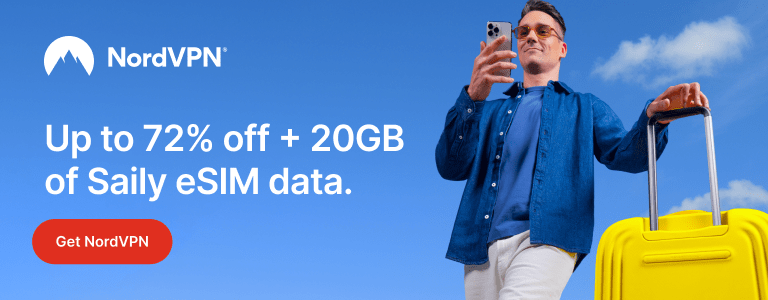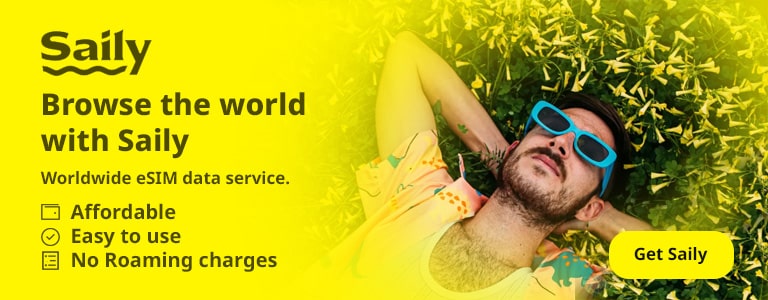FEATURED
Home
Blog
The VPN Hack That Made My Mexico Trip $750 Cheaper
We all know traveling is expensive. But did you know there are many travel hacks that make your trip a lot cheaper? I have been traveling since 2006, and on my last trip I discovered this simple, little-known VPN hack that slashed over $750 off my travel expenses. Here’s how you can do the same and save big on your Mexican getaway.
Published on June 2024
•
7 min read
This is a guest post by an independent contributor.

“My dear, touché. Your next blog post should be about how to save money by not buying every book you see.”
I travel. I love traveling. I blog, and I love blogging about what I learn during my travels. Writing about financial planning is one of the things I aim to do. However, my wife, Cassia, often jokes that I spoil those very recipes by spending on books and plants. Let me be honest about this: I have always been biased regarding how good frequent travelers are when it comes to personal finances.
If you are already on this blog, you might be planning your next holiday tour, or maybe you’re not. Believe me, this blog is going to teach you the coolest hack that you can share with your buddies anyway.
But promise me, it’s not going to be another read-and-scroll piece of political gossip. Apply the hack as soon as possible before all the offers are gone, hotels are packed, and airlines are on the runway.
Be informed
Guest posts, like this one, are submitted by independent contributors sharing their personal experiences. Although we perform quality checks before publishing, we are not liable for any inaccuracies.
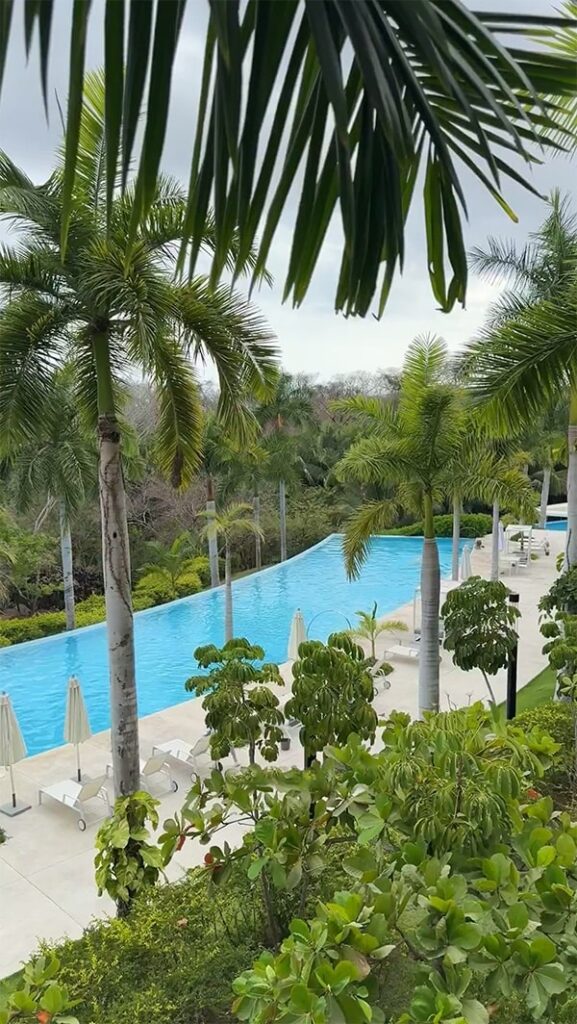
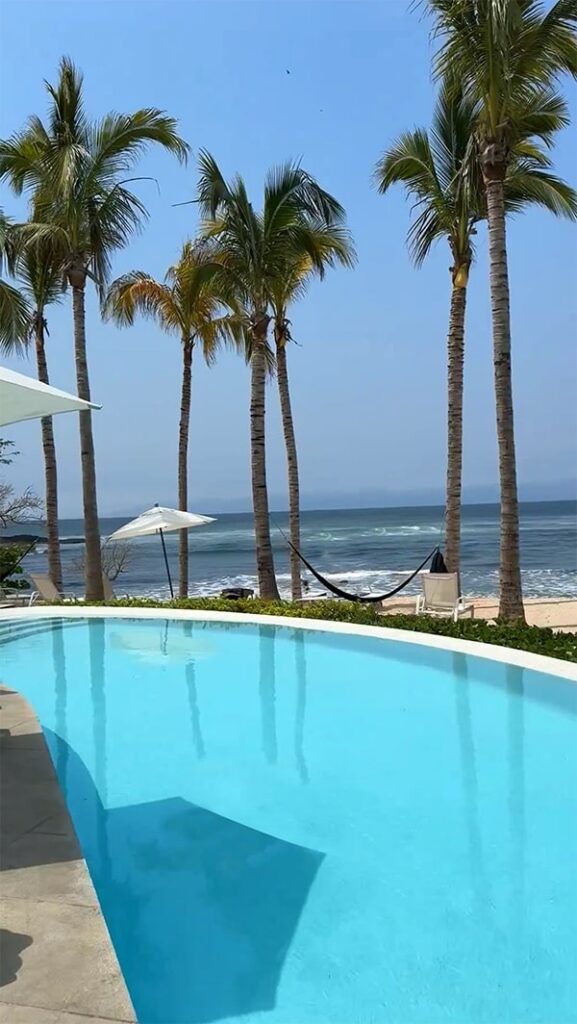

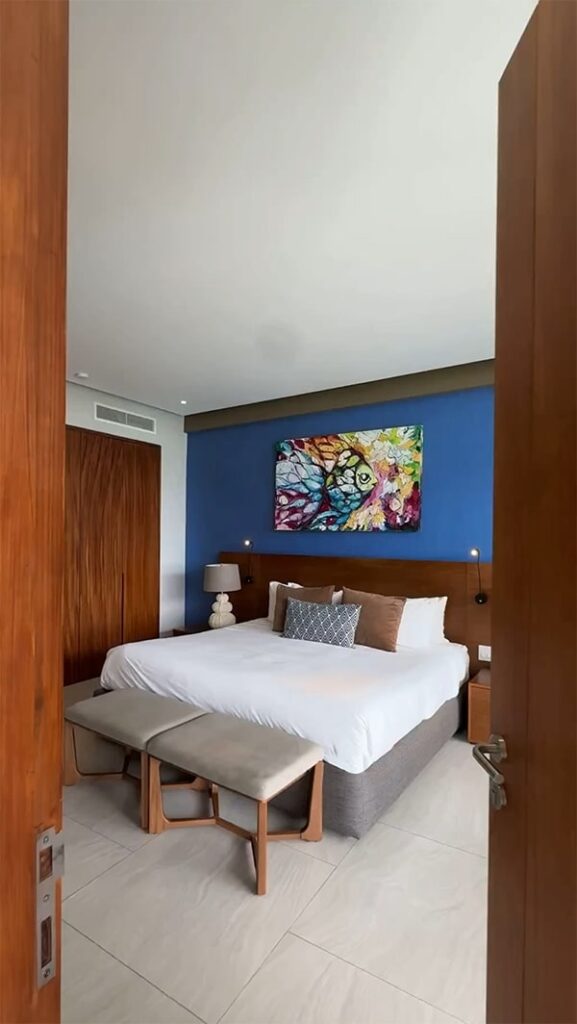

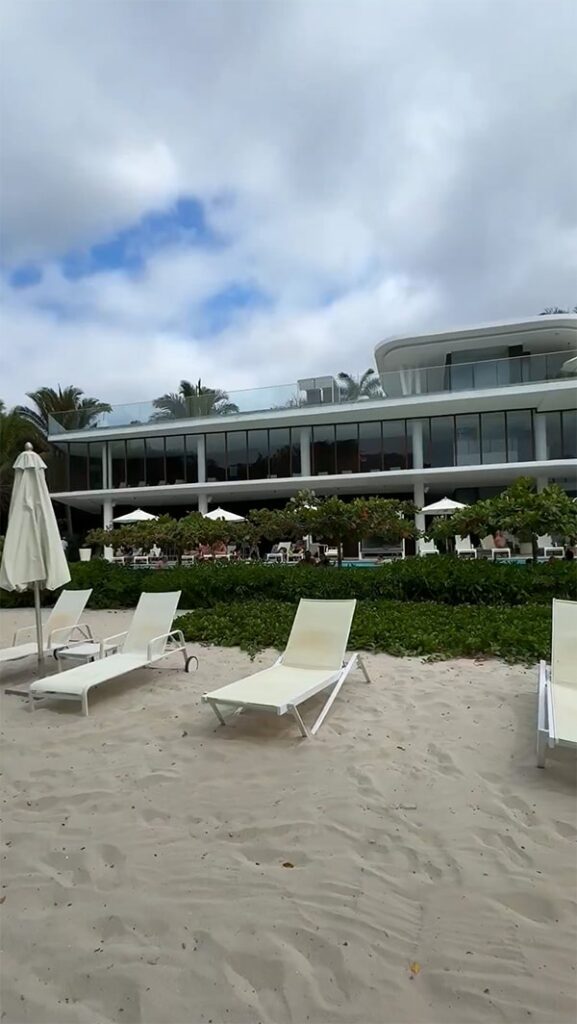


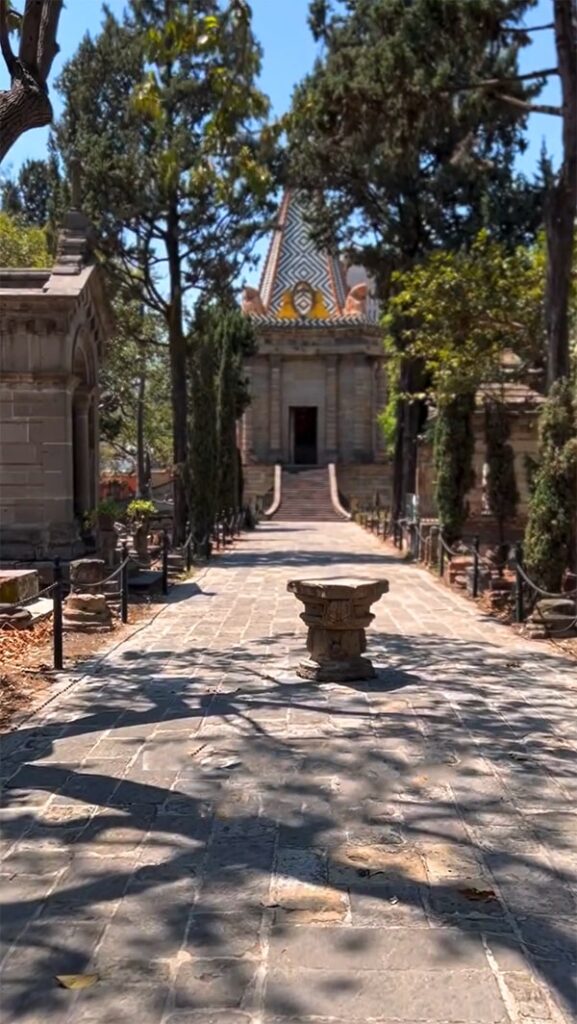
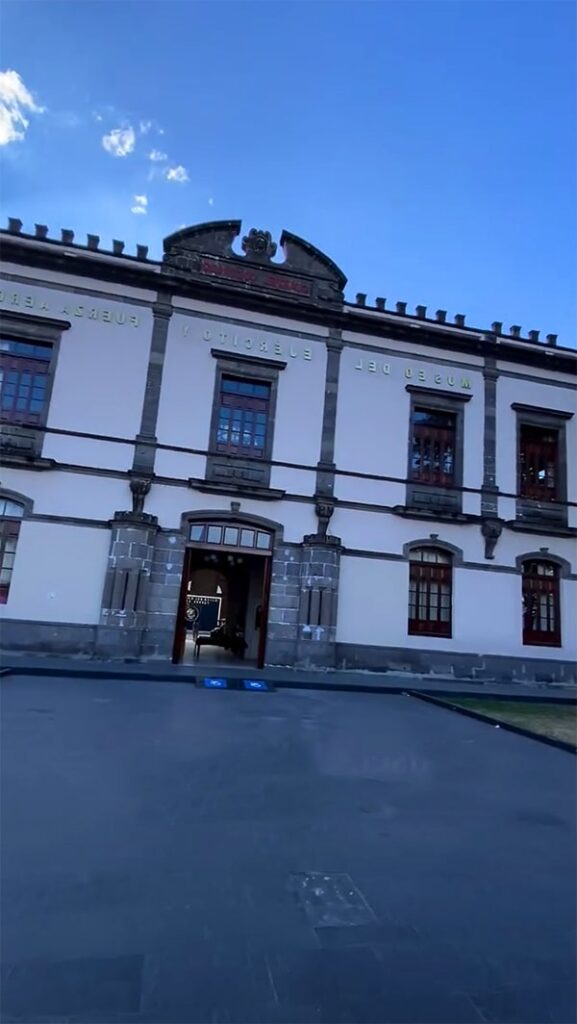

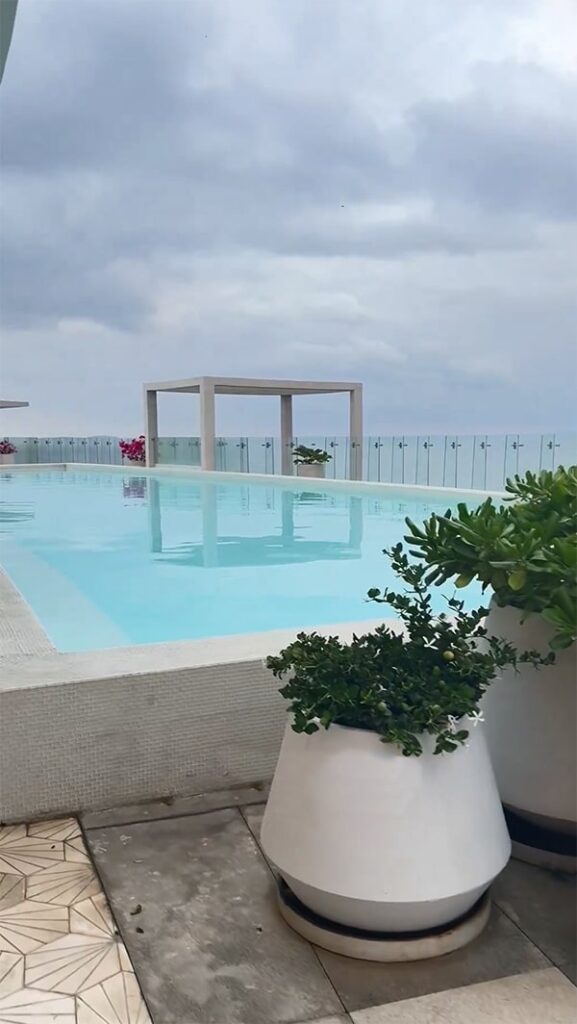
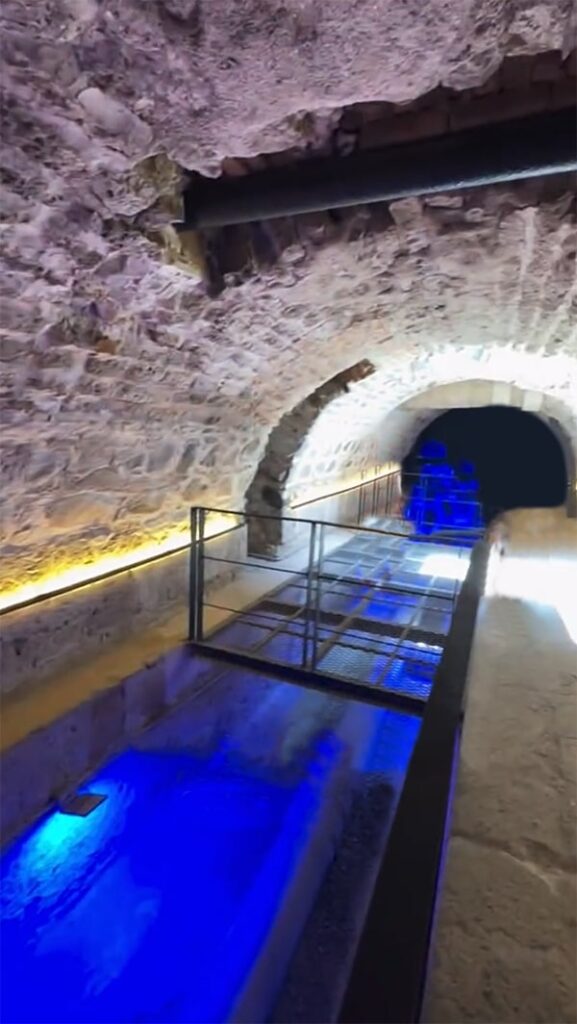
Places I visited during my last trip to Mexico
I am Chris Charles
An SATW award-winning travel blogger. I have been traveling since 2006. Many of you might already know me. I have volunteered and led over 280 expeditions across all seven continents.
Most of my blog posts are voluntary contributions to some of the well-known travel magazines. I also author blog posts for profit-making publishers, where sometimes I receive incentives from the publishers.
Mexico welcomes you at a cost
Traveling can be pricey, no doubt about it. Ironically, as a tourist, you might end up paying three times the usual price. This is why tourism has turned into such a lucrative industry. Airline tickets, hotel bookings, and rental reservations can quickly drain your wallet when traveling abroad. It’s no longer unusual for tourists to be charged two, three, or even five times more than the actual average cost of these tradeables.
As a frequent traveler, I’m always on the lookout for any legal loopholes to make my trips as affordable as possible. Over the years, I’ve written hundreds of blog posts and guided many fellow travelers. Today, I want to share an amazing hack I discovered during my last visit to Mexico. As you might have guessed from the title, it saved me over $750, and yes, it’s completely legal. So, without further ado, let’s dive in!
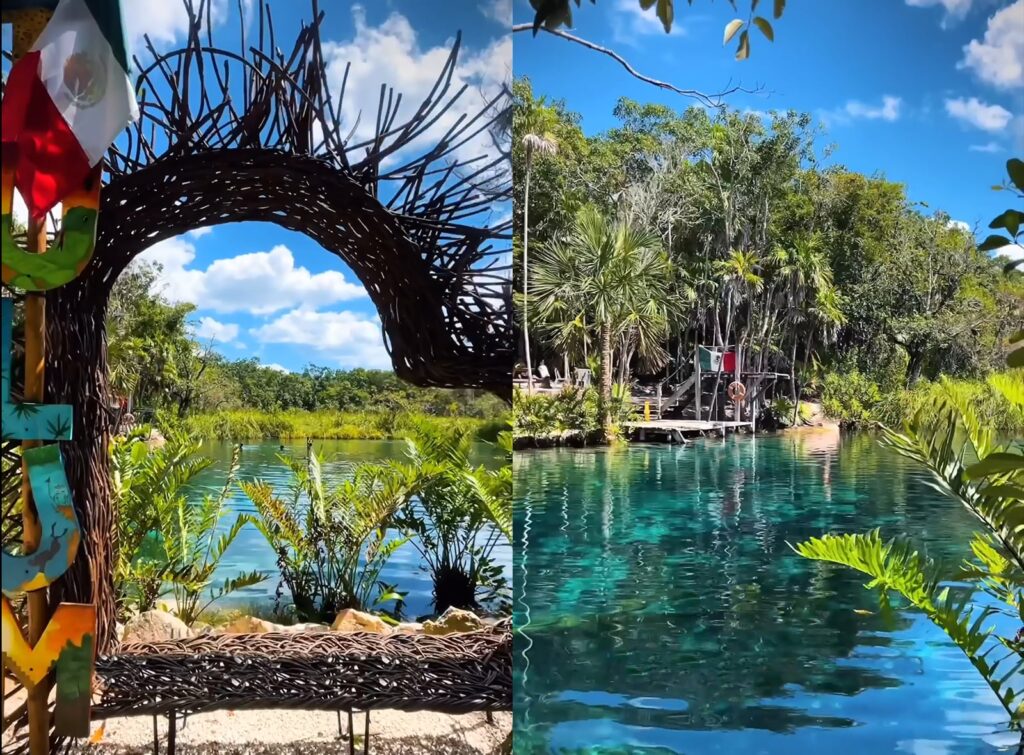
Photos taken at Cenote Corazon Del Paraiso near Tulum
The pricing ploy
Many travelers book hotel rooms, air tickets, and other services in advance to ensure availability and avoid the challenges of high demand. Secondly, booking on arrival can cost you more since you miss out on exclusive discounts that they only offer online.
Most travelers use portals like Booking.com, Expedia, and other specialized websites for their reservations. Now, here’s where it gets interesting: these online portals have some clever tricks up their sleeves when it comes to pricing. Their pricing systems aren’t just based on the value or services they offer but also on your spending habits and online purchasing patterns.
Sponsored:
Sponsored:
One key factor is your geo-location. Booking websites use your IP address, cookies, and personal data to figure out where you’re from and how you shop online, adjusting prices accordingly.
Take Netflix, for example. The same standard subscription that costs nearly $15.50 in the US costs as low as $2.80 in a South Asian country. Similarly, a US traveler might pay over $100 more per night for a hotel room in Mexico than a local would. Why? Because travelers, especially those from wealthier countries like the US, are perceived as less price-sensitive. Hotel owners, airline companies, and local service providers exploit this perception, knowing that tourists are willing to pay more for convenience and availability.
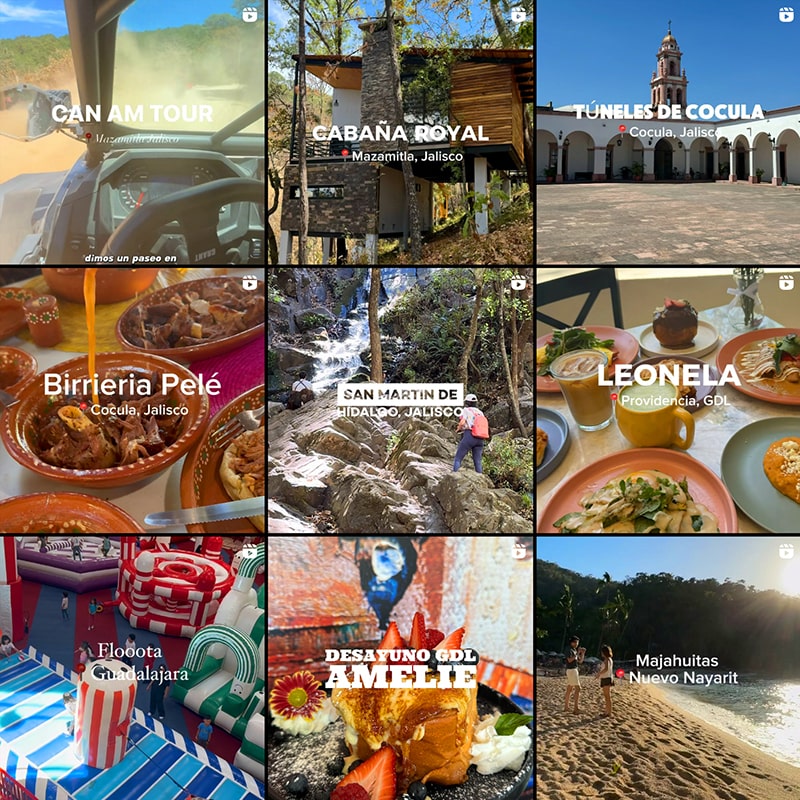
The VPN-Genie
What if you could reserve a room from within Mexico? Remember, it’s not just your geo-location that gives you away, but also your browser cookies and account-level personal data that reveal your country of origin. So, no matter where you are, your browser and device have already spilled the bean. That’s where a reliable VPN comes in.
VPNs are designed to mask your identity. Much like incognito browsing, VPNs use a multilayered mechanism to protect your cyber activities by providing foolproof anonymity. Initially, I didn’t think of using a VPN for anything other than online safety, but this VPN hack turned out to be the coolest financial trick during my last visit.
After discovering this hack, I started using a VPN almost everywhere. Whether I was booking a room, reserving a seat, getting a cinema ticket, renting a car, or subscribing to online platforms like Netflix or Spotify, I saw a significant price drop. This simple trick saved me more than I ever expected.
Let me share my Mexico experience before I teach you the method.
The Mexico guide through a VPN
1. The Cabanas Beach Hotel & Spa
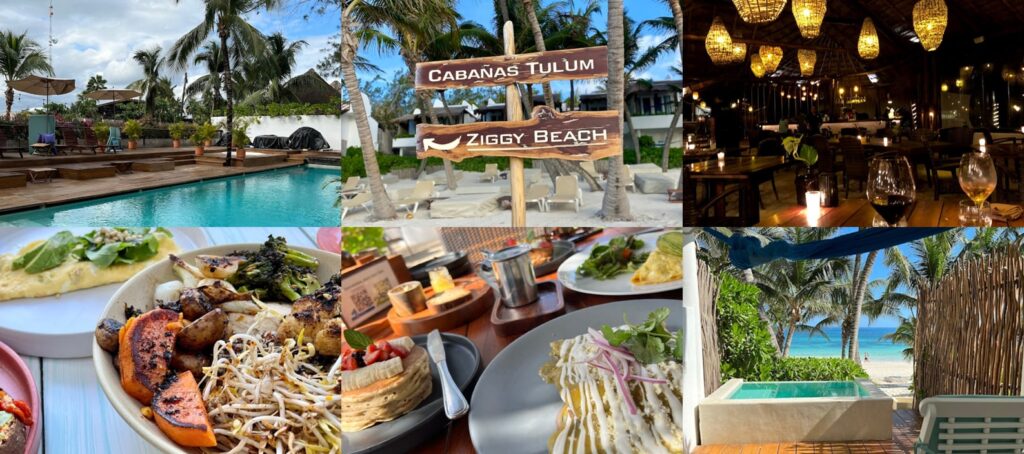
Cabañas Beach Hotel & Spa - Tulum
“You didn’t stay at Cabanas? You must visit Tulum. Again”. My friend Brown from Texas has a peculiar love for Cabanas. We stayed at Cabanas for two days before leaving for Isla Mujeres island, paying $790 per night, including taxes, for the Beachfront Queen rooms. Two nights came to $1580 each.
Four days forward, on November 20th, we left Isla Mujeres. I took out my laptop, put on a VPN mask, and accessed the same booking portal. This time, the same Beachfront Queen room was priced at $640—straight $150 cheaper. Brown powered up his laptop the very next moment and, surprisingly, on his device, the price tag was again $790/night. Here’s a screengrab from both laptops:
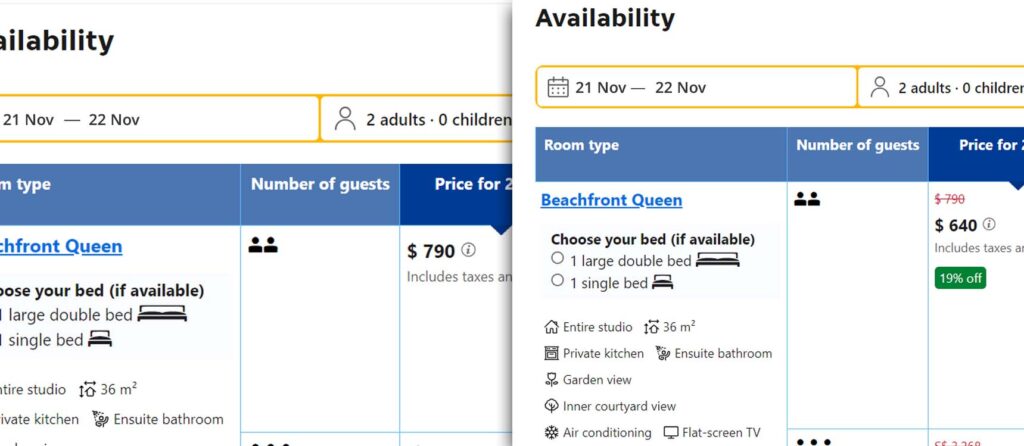
Hotel booking portal on Brown's Laptop (left) & on my Laptop with the VPN enabled (right)
Paying significantly less rent than we did previously, we booked the room and stayed there for two days. At this point, both Brown and I were in the gray. We didn’t know if we saved $300 each now or lost it during our first stay. With a bittersweet feeling, we spent two days at Cabanas and left for Oaxaca. We were already in the middle of our trip when I discovered this VPN-Genie. The first instance, and I was already $300 under my travel budget. A new level unlocked; I was obsessed and wanted to put it to another test.
I booked our air tickets from Tulum to Oaxaca City. VPN: enabled. Excitement: peaked. But no discounts or any price differences this time. Try again.
2. Flight to Puerto Vallarta
We stayed in Oaxaca for four days before heading to Puerto Vallarta: nights aglow with fiesta and flamenco.
Another slash, this time, my VPN-Genie saved us over $380, reducing the cost of each air ticket by over $80 for our trip from Oaxaca City to Puerto Vallarta. Brown was there. We did the same price comparison with and without a VPN enabled.
Notice the pricing difference on the exact booking website from different IPs.
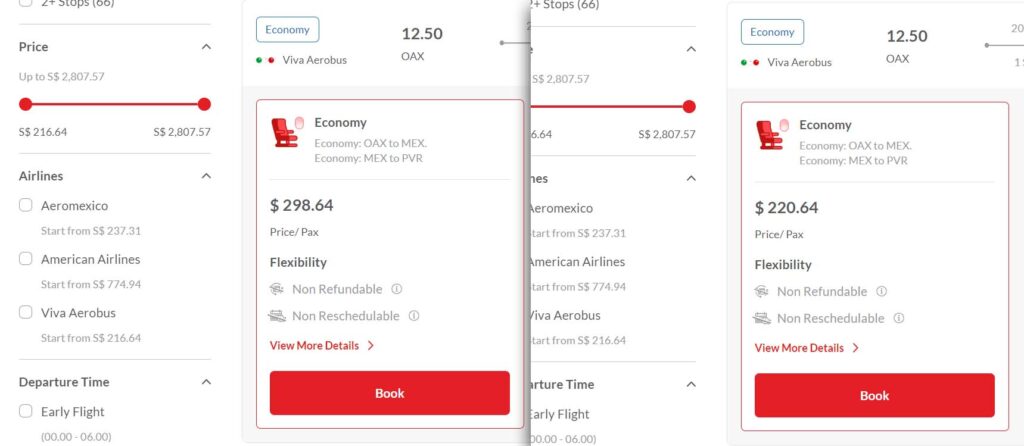
Air ticket portal without a VPN (left) and with a VPN (right)
Over $380 down on five air tickets. That is three times more than the amount I paid for my two-year VPN plan. What is important to note is that Brown is also connected to Wi-Fi based in Mexico, while when I am on a VPN, I also connect to a Mexico-based server (offered by the VPN provider). That’s how, no matter wherever you may be, the booking portals go beyond your concurrent geo-location when it means business.
3. Mega Yacht Yelapa Waterfall
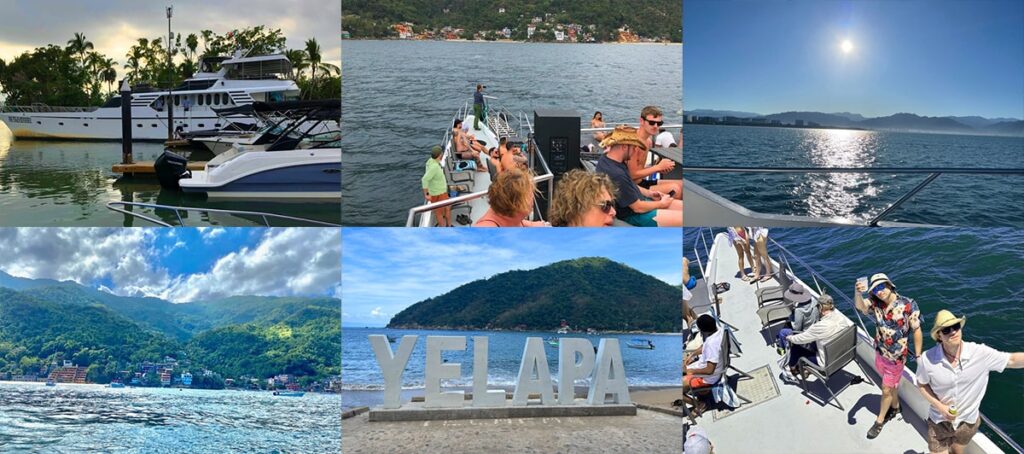
Mega Yacht Yelapa Waterfall Tour Photos
If you love yachting and have Puerto Vallarta on your list, then it’s the place to be. I’ve had the experience almost 10 times during my 16 Mexico tours. At this point, we spilled the beans. Brown and five other tourists we met were already using a VPN. We used this trick almost every time we had anything from $5 to $5000 to book online. I must say, it didn’t work every time, but using a VPN proved to be a reliable companion many times.
This time, it was when we tried to reserve the Mega Yacht for Yelapa Waterfall. We used the Mexico server and availed a $65 discount offer, which was completely missing when we were disconnected from the VPN. I’ve attached the screenshots for you.
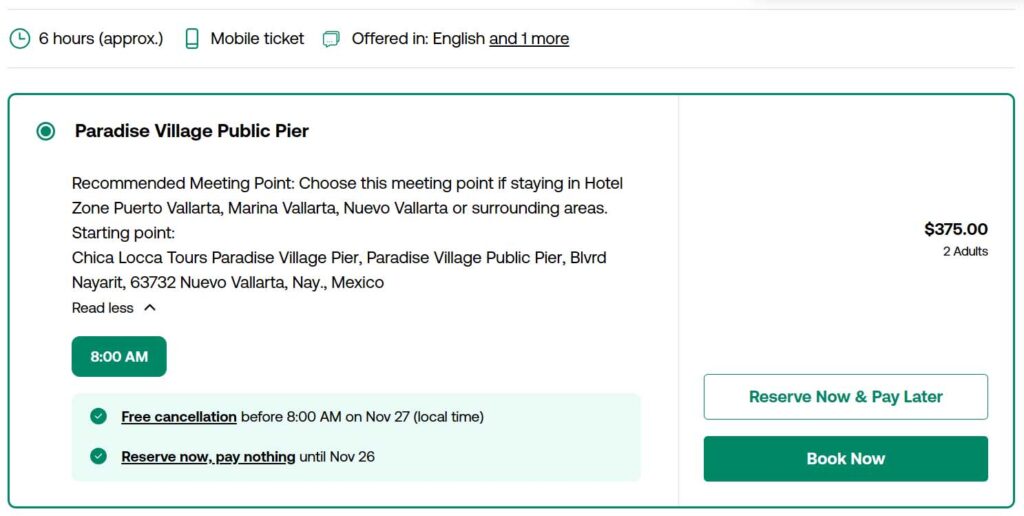
Yacht booking portal without a VPN enabled.
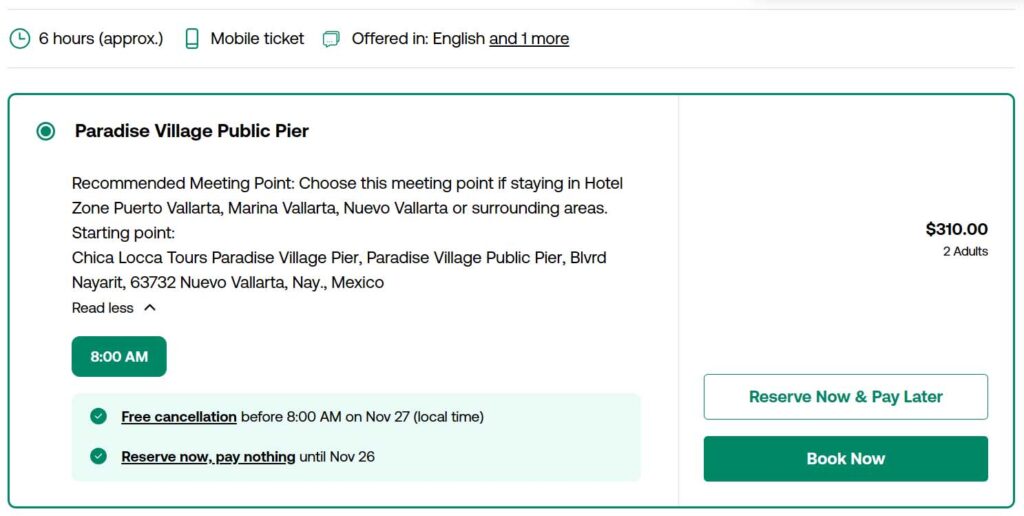
The same booking portal with a VPN enabled
Around $65 off from the actual price. Five reservations. A total of $325 in savings: enough for our fajita lunch during our Yelapa venture. My dear Cassia named my VPN a Genie, for a reason.
Is there a DISCLAIMER here? Yes! As I mentioned above, not every time we used this VPN did it work for us. Also there were times when reservation portals deliberately reduced the prices. So, while using a VPN, don’t expect it to work all the time.
4. Saily - The cheapest Internet Data in Mexico
Whether it’s for surfing, connectivity, social media, business, bookings, or entertainment, we need a stable internet connection wherever we are. Saily – an eSim especially designed for travelers – has been a great addition to my travels. It offers the cheapest data packages with no roaming charges in almost any country you visit, eliminating the hassle of buying a physical SIM in a new country. During my entire 20 days journey through Mexico, it cost me roughly $14 for an uninterrupted internet access. If you have ever traveled abroad, you will know how low this amount is. I recommend you to must give Saily a try. Believe me you will not regret it.
Our Mexico tour ended with many memories, and learning this little-known VPN hack was one of the highlights of our journey. Let me confess, we didn’t actually end our tour with extra cash in our wallets; instead, we spent the surplus on souvenirs and shopping. And that’s all thanks to my Genie.
Sponsored:
Sponsored:
The Essential Role of VPNs in Travel
Despite all these specific uses of a VPN, I personally never trust public Wi-Fi while traveling. Every year we see a growing number of data leaks among travelers.
The second most important use of a VPN is for online payments and banking protection. Digital payments have almost completely replaced the traditional cash payment system everywhere. VPNs encrypt your internet connection, making it almost impossible for hackers and scammers to access your data. So, there’s no second thought about going on a trip without a VPN.
The method
The method is very simple. All you have to do is visit the VPN provider’s website, sign up using your email, subscribe to a suitable package (annual/monthly), install the VPN on your device, and choose a server location to connect through with just one click. Each VPN has a different interface, so check online tutorials. Since I personally used NordVPN, here’s the method to connect to a server:
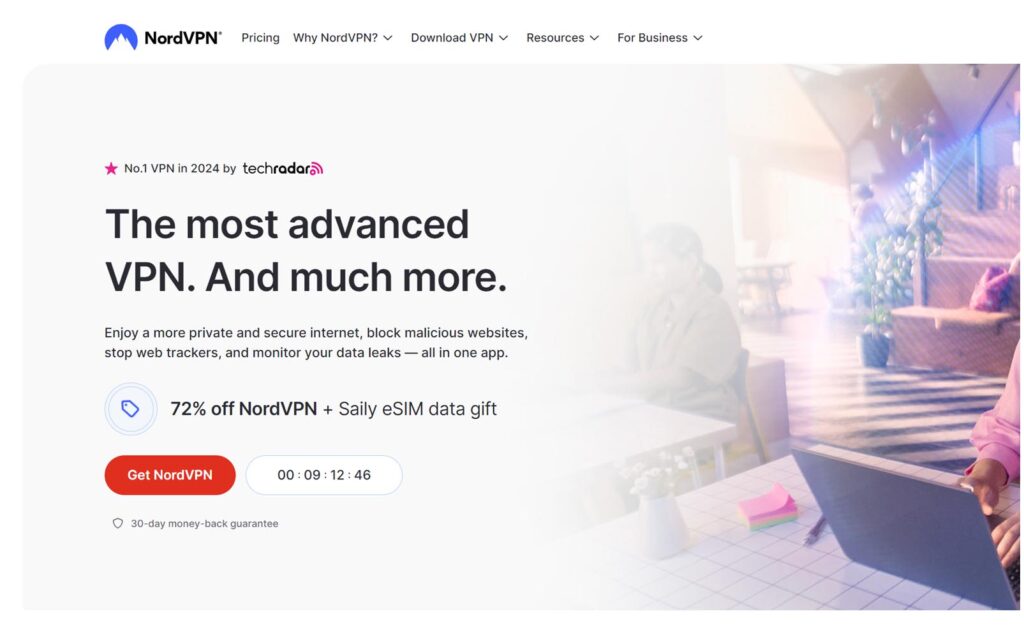
Visit NordVPN website
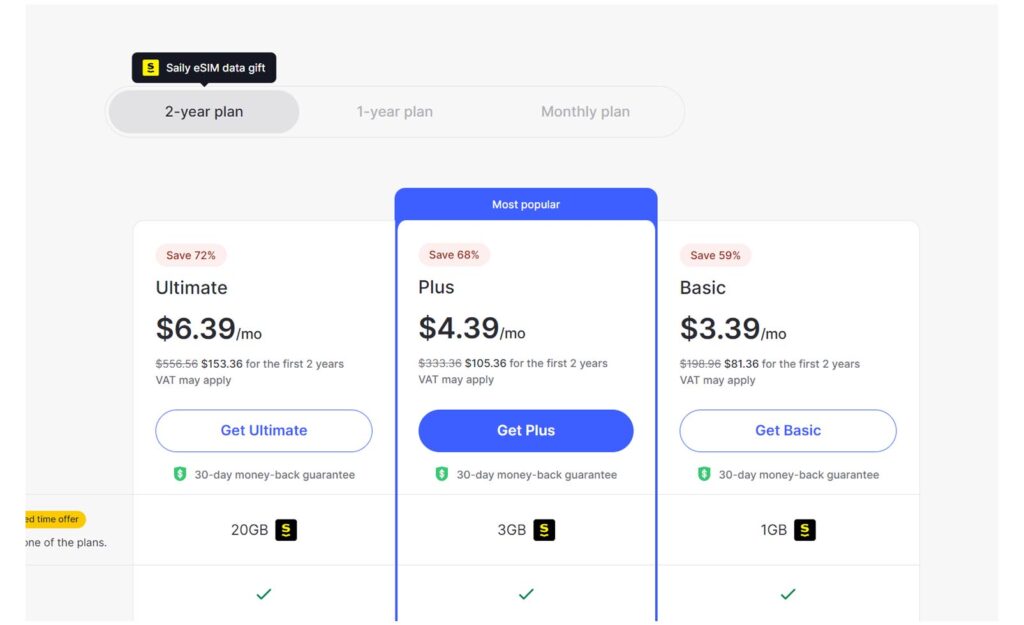
Choose a subscription plan, sign up using any email & pay for it.
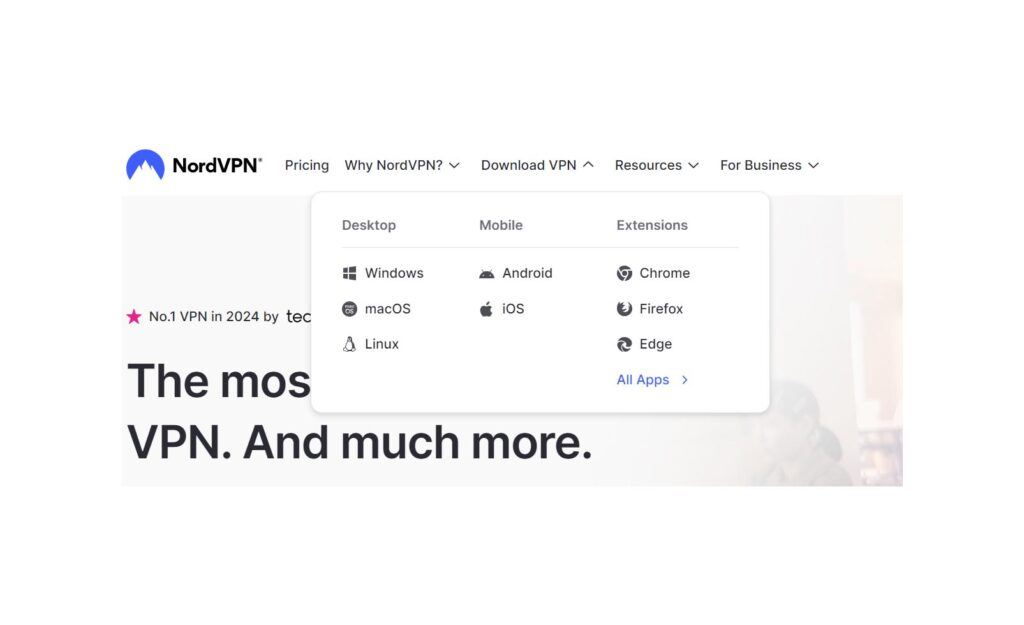
Click on "Download VPN" from navigation & download an app for your device
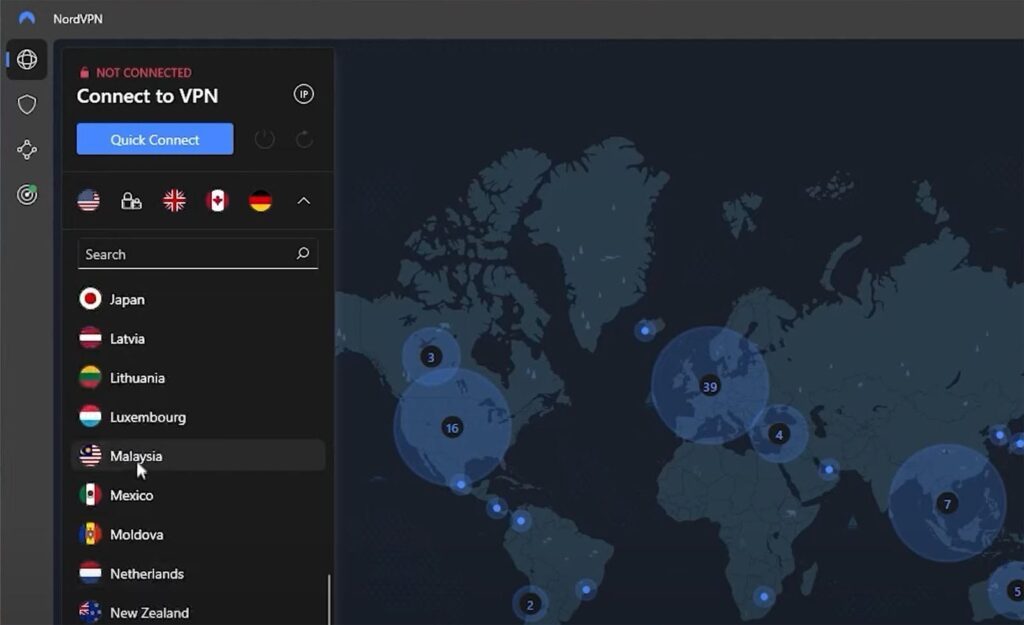
Login using same email you signed up. Just click on any country you want to connect through.
Which is the best VPN for traveling?
Choosing the best VPN can be a bit tricky. If you have enough time, check out detailed videos explaining and comparing top-tier VPNs. Let me briefly summarize what makes a VPN suitable for the intended task. Go for a VPN that:
- Encrypts your internet connection, as booking portals can bypass some VPNs especially free VPNs and decline your payment.
- Has a kill switch so you are not visible to websites whenever your internet connection drops.
- Has a lot of server locations so you can experiment with different options.
- Has the ability to bypass cookies so you don’t encounter issues while making payments.
- Is affordable (since our aim is to remain as low on budget as possible).
What makes NordVPN the best VPN
NordVPN is the industry-leading VPN provider, no doubt. It was my personal choice for five important reasons:
- It was much cheaper compared to other VPNs. We got it for as low as $4.30 per month with a 2-year subscription plan.
- It has over 6,000 servers across the globe, giving me many options to connect.
- It allows me to connect to my home Wi-Fi even from abroad. You read that right. NordVPN has this incredible feature that allows you to use your home Wi-Fi on your devices from anywhere in the world, just like being physically at home. This feature makes my connection super secure and helps avoid shady public Wi-Fis.
- Saily, the eSIM we already discussed, works perfectly with NordVPN.
- Device support: NordVPN supports almost all of my devices and runs on them simultaneously.
With love. It ends here.
Many of you might have already read my blog posts and will be familiar with my straightforward and unbiased approach when it comes to promoting any of my affiliate programs. My affiliate programs can never eclipse my mission of helping travelers and nomads. So, the post ends here. The following section is specifically about my affiliate program. Continuing to read is optional now.
For this particular blog post, I approached NordVPN. They not only offered me a promising discount on their plans but also, if you use my affiliate link, you will get 100% free eSIM data if you subscribe to any of their 2-year plans.
To avail just click on this image:
If you are already using a paid, reliable VPN, then you must give Saily a try. When I say it offers the CHEAPEST internet data packages, I mean it.
Click on the following image for Saily:
Again, helping travelers is my mission, and I can never compromise on it for a few bucks. So, don’t just take my word for it. Using my affiliate links is totally optional. Go ahead, take your time. Ask your office buddies, search online, watch videos, and then decide which VPN you prefer. If NordVPN is your choice, then use my affiliate links to avail yourself of a good discount along with free eSIM data.
Final Thoughts
I have been traveling since 2006 and have been helping travelers for over 10 years through blogging and sharing my personal experiences. Planning a tour to any country requires a lot of strategic thinking. It almost always costs you 20% to 30% more than your initial projection made during the planning stage. Apart from hidden costs, many unplanned events and expenses arise during our journeys, causing us to dip into our savings. Go with a plan, and you will not only save money but also enjoy your journey more.
Chris.
We are an alliance of passionate cybersecurity experts, united by a shared mission to disseminate our in-depth knowledge of digital security measures. Our commitment is to empower internet users by providing them with the essential tools and insights needed to navigate the online world safely. Through topVPNspot.com, we offer a platform where our collective experience in cybersecurity converges to guide users in protecting their digital presence effectively.


